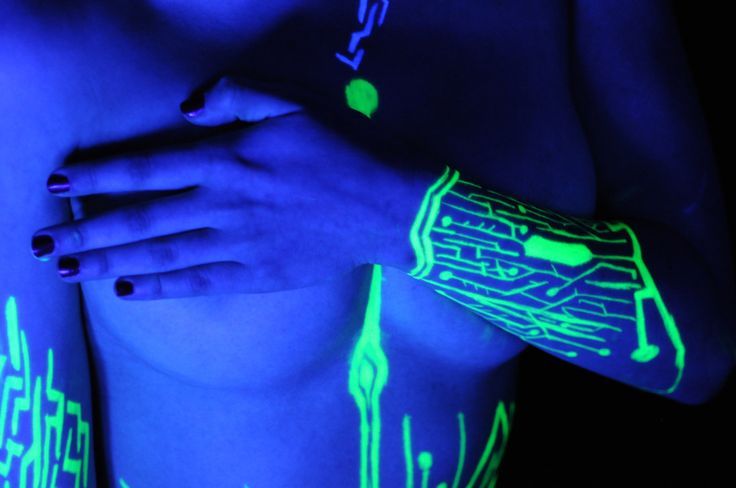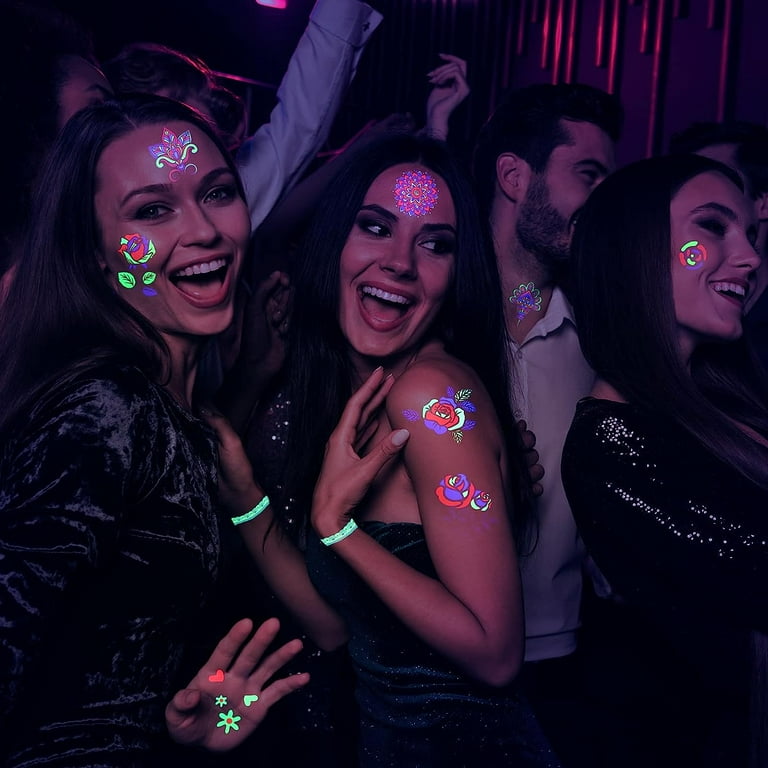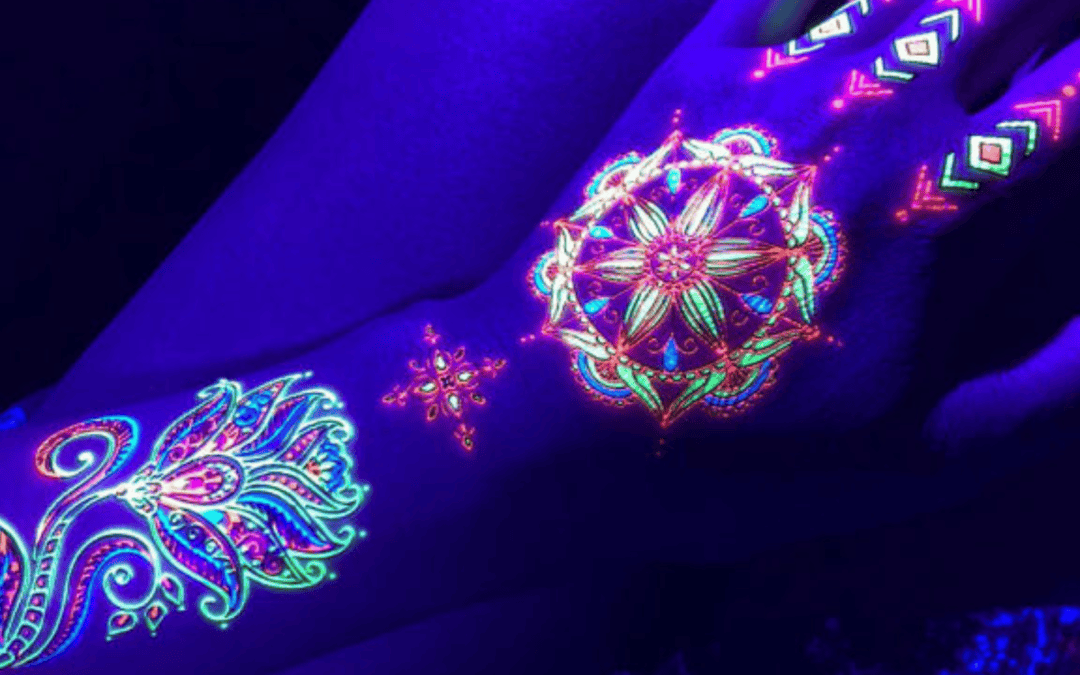In the world of body art, innovation and creativity are constantly evolving. One of the latest trends capturing the attention of tattoo enthusiasts is UV tattoos—also known as glow-in-the-dark or blacklight tattoos. UV tattoos are created using ultraviolet ink, which glows brightly under UV or black light but remains subtle in regular light. They add a hidden twist to your design. This blog will explain how UV tattoos work, why they’re becoming popular, and important factors to consider before getting one.
1. How Do UV Tattoos Work?

UV tattoos are created using specialized ink that reacts to ultraviolet light, causing the tattoo to glow when exposed to a UV or blacklight source. Unlike traditional tattoos, UV tattoos are often subtle and sometimes invisible in natural light, which adds an element of surprise when they glow under the right conditions.
The Science Behind UV Ink:
- UV tattoo ink contains fluorescent pigments that react to UV light, causing the ink to emit a bright glow. These pigments are invisible in normal lighting conditions but light up under UV exposure. UV tattoos can be done in various colors, with bright neon hues like green, pink, blue, and yellow being the most common. Modern UV tattoo inks are designed to be skin-safe and free of harmful chemicals.
2. The Popularity of UV Tattoos: Why People Love Them
UV tattoos are gaining popularity because they offer a unique blend of visibility and discretion. They can be hidden during the day and come alive under black light.
Key Reasons for the Growing Popularity:
- UV tattoos are almost invisible under normal lighting, making them a great choice for a subtle one that won’t easily stand out in professional or formal settings.
- UV tattoos stand out in nightlife environments, such as clubs or concerts, where blacklights are common, making them ideal for showcasing ink in a fun and unique way.
- UV invisibility allows for creative combinations, like adding UV ink to traditional designs for hidden layers of detail.
3. The Process of Getting a UV Tattoo
The process of getting a UV tattoo is similar to that of a regular tattoo, with a few key differences in ink and the aftercare required.
What to Expect:
- Consultation with a Skilled Artist: Not all tattoo artists specialize in UV tattoos, so finding someone experienced with ultraviolet ink is essential. Ask about the type of ink they use and any safety precautions they follow.
- Design and Placement: UV tattoos can be standalone designs or incorporated into existing ones. The tattoo’s placement is important—skin tone and location can affect the visibility of the ink, even under UV light.
- Pain and Healing: The pain of getting a UV tattoo is similar to that of traditional, but healing may take slightly longer due to the nature of the ink. It’s essential to follow proper aftercare instructions to avoid complications.
4. Aftercare for UV Tattoos: What You Need to Know
Proper aftercare ensures that your UV tattoo heals well and the glow effect remains intact. UV ink tends to be more sensitive than regular ink, so the aftercare process may require extra attention.
UV Tattoo Aftercare Tips:
- Keep It Clean: As with any tattoo, it’s essential to keep the area clean and free from bacteria to avoid infection.
- Moisturize Regularly: Use a fragrance-free moisturizer or specific aftercare lotion to keep the skin hydrated and promote healing.
- Avoid Sun Exposure: UV tattoos are more prone to fading, so protecting from prolonged sun exposure is essential, especially in the first few weeks. Wearing sunscreen on the tattooed area once it’s healed will help preserve the ink.
- Longer Healing Time: Due to the nature of the ink, UV may take slightly longer to heal, so be patient and avoid picking at any scabs or peeling skin.
5. Pros and Cons of UV Tattoos

Before getting a UV tattoo, consider the pros and cons to see if it’s right for you.
Pros:
- Unique and Discreet: UV tattoos allow for subtle designs in daylight but are visually striking under blacklight, offering a fun way to express yourself.
- These work great for events like nightclubs, festivals, and concerts where blacklights are often used.
- Combining Styles: You can blend UV ink with regular ink to create layered designs that appear different in various lighting conditions.
Cons:
- Limited Visibility: While some people enjoy the invisibility of UV tattoos in normal light, others may find the subtlety disappointing if they want to be more visible.
- Fading and Durability: UV tattoos fade faster than traditional, especially if they are frequently exposed to sunlight.
- Safety Concerns: It’s crucial to ensure that your artist uses high-quality, non-toxic ink, as older versions of UV ink have been known to contain harmful chemicals, even though modern UV inks are considered safe.
6. Is a UV Tattoo Right for You?
Deciding whether or not to get a UV tattoo depends on your preferences and lifestyle. UV offers numerous creative options, from hidden designs that glow under black light to those combining regular and UV ink. Before you get a glow-in-the-dark tattoo, ensure your artist uses safe, high-quality ink and be prepared to provide extra care to maintain the glow-in-the-dark effect.




